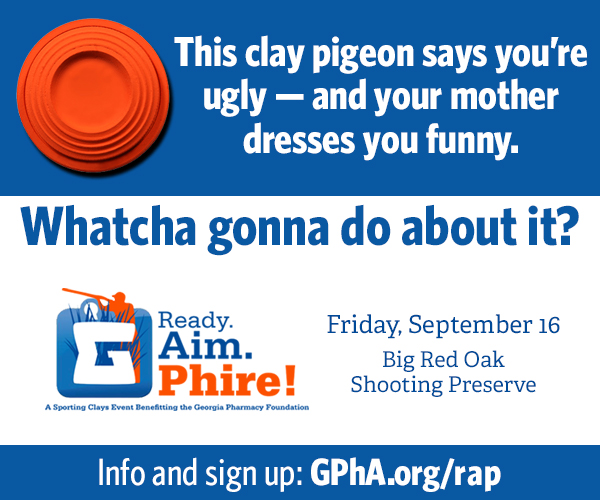FDA’s dog-poison warning, psilocybin placebos, chatting through masks, and more
08 Sep 2022
Posted by Andrew Kantor
All in their heads?
Microdoses of psilocybin are getting press for helping patients with depression an anxiety. But how much of that effect is real? Not all, it seems — there’s the placebo effect at work.
Argentinian neuroscientists found (in a small double-blind study) that psilocybin didn’t affect creativity, cognition, or self-reported mental well-being and in fact “may have hindered performance on certain cognitive tasks.”
There was one slight difference: The subjects who figured out they had taken the actual drug reported more acute effects (e.g., “My sense of space and size was distorted”).
• • •
Get ready for Medicare 2023
Are your patients ready for Medicare Part D enrollment? It begins October 15 for the 2023 plan year. If they aren’t, you should be, an NCPA has a couple of useful resources for ya:
- 2023 Medicare Part D Pharmacist Quick Reference Guide (2-page PDF)
- Printable bag-stuffer for patients (1-page PDF)
He who hesitates doesn’t have a pharmacist on staff
Prescribers seem hesitant to prescribe biosimilars for drugs like Remicade, even though those alternatives have been around for years. Some prescribers, but not all. What makes the difference? Having a pharmacist in the practice.
Looking at the records of almost 1,000 patients, researchers at Rhode Island Hospital found that “provider[s] with a pharmacist affiliation were 39% more likely to use a biosimilar than those who weren’t.”
[P]harmacists “have a baseline understanding” of biosimilars that enables them to address and in many cases overcome prescriber hesitancy. “Having pharmacists [with] this influence in these clinic spaces is really significant.”
Parkinson’s test nears
Until now, there’s only been one test for Parkinson’s: the nose of a 72-year-old woman from Perth, Scotland*. A rare condition allows her to smell it on people, starting with her husband.
But now researchers at the University of Manchester, England, England have made a test based on her ability that can identify the disease much earlier using a simple cotton swap along the back of the neck. (Currently, by the time someone is diagnosed they have significant neurological damage.)
“What we are now doing is seeing if (hospital laboratories) can do what we’ve done in a research lab in a hospital lab. Once that’s happened then we want to see if we can make this a confirmatory diagnostic that could be used along with the referral process from a GP to a consultant.”
* If you’re in the mood for Italian, try Broth3rs Restaurant on George St.
Help your patients not kill their dogs
If you fill a prescription for fluorouracil cream, warn your patients: If they have dogs, don’t leave the tubes anywhere Fido or Rover can get to them (e.g., a nightstand). The FDA has been receiving reports of dogs dying after licking or chewing the tubes.
Signs of fluorouracil poisoning in pets can start within 30 minutes, and include vomiting, shaking, seizures, difficulty breathing, and diarrhea. Death can happen in as little as 6 to 12 hours after a pet is exposed.
Seeing past the masks
Wearing a mask, it seems, doesn’t affect everyday social exchanges. That’s the conclusion of a newly published University of Kansas study; it found mask wearing “had no effect on the ease, authenticity, friendliness of the conversation, mood, discomfort or interestingness” of interactions between 250 student volunteers.
Notably, the work was done in 2012, before basic health precautions became a political issue. “Masks are suffused with meaning [today] — political, social, health — in a way they weren’t then,” said the lead researcher. “People have the skills to look past things that block the face — a mask, a hat, sunglasses and so on. We’re still able to get through to people.”
Soon to be appealed
A federal judge in Texas has ruled that the part of the Affordable Care Act that requires insurers to cover preventative services and drugs for free is unconstitutional.
Business owners shouldn’t be forced to buy insurance that pays for some preventative medications and procedures they don’t like, he ruled, even if they themselves will never use them.
Plaintiffs had said it violates their religious freedom if they have to provide employees with coverage that includes zero-co-pay “PrEP drugs, contraception, the HPV vaccine, and the screenings and behavioral counseling for [sexually transmitted diseases] and drug use.”
The Long Read: Flu’s a-Comin’ edition
The Atlantic — World’s Most Depressing Magazine™ — is warning that this year’s flu season is going to be really really bad. (Maybe — the words “could” and “may” appear 18 times in the piece.)
After skipping two seasons in the Southern Hemisphere, flu spent 2022 hopping across the planet’s lower half with more fervor than it’s had since the Covid crisis began. And of the three years of the pandemic that have played out so far, this one is previewing the strongest signs yet of a rough flu season ahead.
To be fair, it’s been bad in Australia, but … well, pre-pandemic normal in South Africa. The question is how bad will the virus be, and how willing people up north will be to take precautions.



